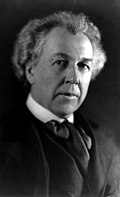Patrick and Margaret Kinney House | |
 Patrick and Margaret Kinney House | |
| Location | 424 N. Fillmore St., Lancaster, Wisconsin |
|---|---|
| Coordinates | 42°51′06″N90°43′10″W / 42.85167°N 90.71944°W |
| Area | 2.9 acres (1.2 ha) |
| Built | 1951-1953, 1964 |
| Architect | Frank Lloyd Wright/John H. Howe |
| Architectural style | Modern Movement |
| NRHP reference No. | 08000160 [1] |
| Added to NRHP | March 6, 2008 |
The Patrick and Margaret Kinney House was designed by architect Frank Lloyd Wright and it was built in 1951. The home is located in Lancaster, Wisconsin. [2] The house was added to the State Register of Historic Places in 2007 and to the National Register of Historic Places the following year. [3]
Contents

